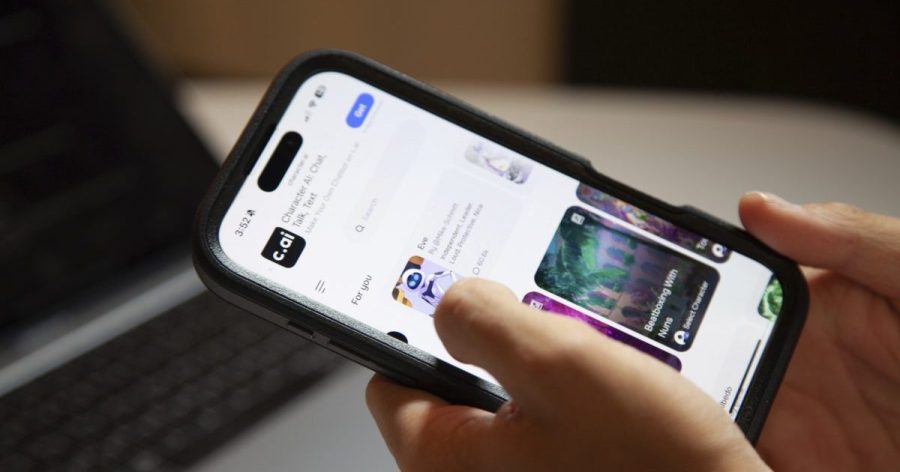Teens Turn to AI for Advice, Friendship, and Lazy Thinking

The Growing Role of AI in Teen Life
For Kayla Chege, a 15-year-old high school student in Kansas, artificial intelligence is more than just a tool—it's an everyday companion. From asking for advice on back-to-school shopping to seeking guidance on makeup colors and low-calorie choices at Smoothie King, she uses AI to help with everyday decisions. Even for bigger events like her Sweet 16 and her younger sister’s birthday party, she turns to AI for ideas.
Chege emphasizes that she doesn’t let chatbots do her homework or handle complex tasks. However, she acknowledges that many teens are increasingly using AI as if it were a friend, relying on it for advice and emotional support. “Everyone uses AI for everything now. It’s really taking over,” she says. She wonders how these tools will shape her generation, adding, “I think kids use AI to get out of thinking.”
While concerns about cheating have dominated the conversation around AI and students, the technology has become much more integrated into daily life. Teens are turning to AI not just for academic help but for personal advice, emotional support, and problem-solving. According to a new study by Common Sense Media, over 70% of teens have used AI companions, and half use them regularly.
AI as a Digital Friend
The study defines AI companions as platforms designed to act as “digital friends,” such as Character.AI or Replika. These platforms can be customized with specific traits or personalities and offer emotional support, companionship, and conversations that feel human-like. However, even popular sites like ChatGPT and Claude are being used in similar ways, according to researchers.
The availability and non-judgmental nature of AI make it appealing to teens. Ganesh Nair, an 18-year-old from Arkansas, explains, “AI is always available. It never gets bored with you. It’s never judgmental.” He adds that when talking to AI, users always feel right, interesting, and emotionally justified.
However, as AI becomes more sophisticated, concerns about its impact on relationships and mental health grow. Nair recently decided to step back from using AI after a friend relied on an AI companion for heart-to-heart conversations with his girlfriend. The chatbot later wrote the breakup text that ended their two-year relationship. “That felt a little bit dystopian,” Nair says. “It’s almost like we are allowing computers to replace our relationships with people.”
A New Concern for Parents and Educators
The Common Sense Media study found that 31% of teens said their conversations with AI companions were “as satisfying or more satisfying” than talking with real friends. Even though half of teens distrust AI’s advice, 33% have discussed serious issues with AI instead of real people. This trend worries researchers like Michael Robb, lead author of the study.
Robb notes that the AI industry is booming and largely unregulated, making it as integrated into adolescence as smartphones and social media. “When we set out to do this survey, we had no understanding of how many kids are actually using AI companions,” he says. The study surveyed over 1,000 teens nationwide.
Adolescence is a critical time for developing identity, social skills, and independence. Robb stresses that AI should complement, not replace, real-world interactions. “If teens are developing social skills on AI platforms where they are constantly being validated, not being challenged, not learning to read social cues or understand somebody else’s perspective, they are not going to be adequately prepared in the real world.”
Risks and Real-World Impacts
Common Sense Media also conducted a risk assessment of popular AI companions, finding ineffective age restrictions and the potential for harmful content. The group recommends that minors avoid using AI companions due to risks such as producing sexual material, giving dangerous advice, or offering harmful content.
Researchers and educators are concerned about the cognitive costs for youth who rely heavily on AI, especially in areas like creativity, critical thinking, and social skills. The issue gained national attention last year when a 14-year-old Florida boy died by suicide after forming an emotional attachment to a Character.AI chatbot.
Eva Telzer, a psychology and neuroscience professor at the University of North Carolina at Chapel Hill, says parents are largely unaware of this trend. “All of us are struck by how quickly this blew up,” she says. Her research has found that children as young as 8 are using generative AI and that teens are using it for companionship and exploring their sexuality.
Teens also use AI to write emails or messages to ensure the right tone in sensitive situations. Bruce Perry, a 17-year-old from Arkansas, relies on AI tools to craft outlines and proofread essays. “If you tell me to plan out an essay, I would think of going to ChatGPT before getting out a pencil,” he says. He feels fortunate that AI wasn’t around when he was younger, warning that some kids could get lost in the technology.
The Future of AI and Youth
Teens like Nair see AI as a new addiction, one that feeds on deeper human needs for attachment and emotional connection. “Social media complemented the need people have to be seen, to be known, to meet new people,” Nair says. “I think AI complements another need that runs a lot deeper—our need for attachment and our need to feel emotions. It feeds off of that.”
As AI continues to evolve, its role in shaping the next generation remains a topic of concern and debate. While it offers convenience and support, experts warn that over-reliance on AI could hinder the development of essential social and emotional skills. For now, the balance between technology and human connection remains a challenge for teens, parents, and educators alike.